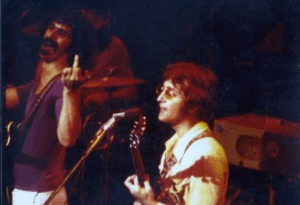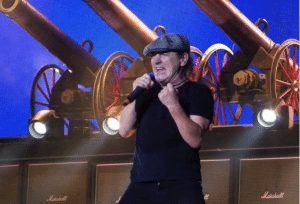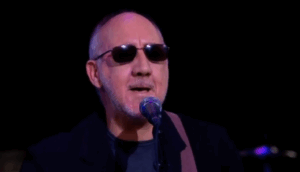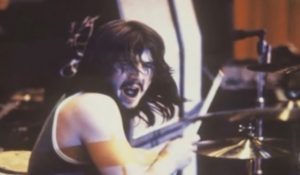The 4 Beatles Songs That Were Created Without John Lennon
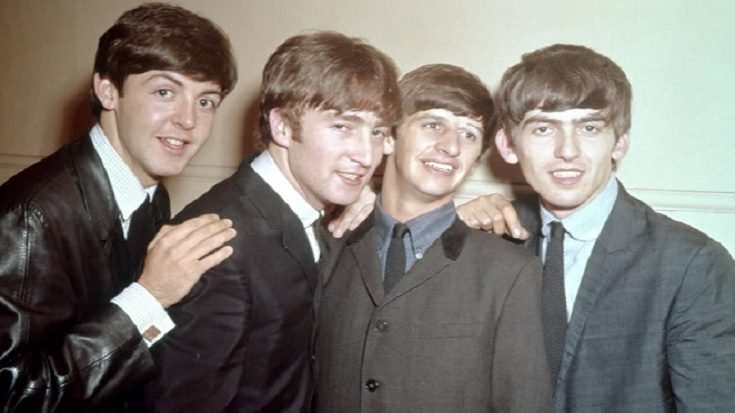
via The Howard Stern Show / YouTube
When people think of The Beatles, they often picture a unified quartet, seamlessly blending their talents in every track. Yet behind the scenes, the recording process was occasionally more fragmented. Creative decisions, scheduling conflicts, or personal circumstances sometimes led to one or more members sitting out on certain sessions—yes, even John Lennon.
John’s absence from a few Beatles recordings might surprise fans who associate his presence with the band’s musical DNA. But while he was instrumental in shaping their identity, some memorable songs came together without his input in the studio. The reasons varied—sometimes artistic, other times circumstantial—but the results still hold a firm place in the Beatles’ catalog.
These moments without Lennon didn’t mark a lack of quality or cohesion. In fact, they revealed the depth of the remaining members’ creativity and musical chemistry. The four songs featured in this list are proof that the Beatles’ magic could still shine, even when one of its brightest stars wasn’t in the room.
View this post on Instagram
“Yesterday”
“Yesterday” marked a turning point for the Beatles—not just musically, but structurally. While Paul McCartney’s ability to craft intimate, melodic ballads was already evident, this particular track saw him stepping into the studio without any of his bandmates. It was the first time a Beatles song had been recorded solely by one member, and what’s more, it happened with the full support of the group. When McCartney introduced the song to the others, they couldn’t find a way to contribute that added value.
Rather than force themselves onto a track that clearly worked as it was, the rest of the band encouraged McCartney to record it alone. It was John Lennon himself who proposed the idea, recognizing that sometimes less truly is more. For a band built on the power of collaboration, this moment reflected a surprising degree of maturity and trust. They were willing to let the song lead, even if that meant breaking their own tradition.
In hindsight, McCartney admitted it was a “big deal” for them at the time. Until then, every Beatles recording had been a group effort in some shape or form. “Yesterday” broke that mold, and in doing so, it opened the door for future creative experiments. It’s become one of their most beloved and enduring songs—and it began as a quiet solo moment, free from John Lennon’s usual influence.
“Here Comes the Sun”
George Harrison’s “Here Comes the Sun” might be one of the most serene and hopeful songs in the Beatles’ catalog, but its recording began under unexpected circumstances. In July 1969, John Lennon and his family were involved in a car accident while in Scotland. Though not seriously injured, the event required rest and recovery, keeping Lennon away from the first recording sessions for what would become Abbey Road.
During Lennon’s absence, Harrison moved forward with his composition, joined by Paul McCartney and Ringo Starr. Each played a distinct role in bringing the track to life: Harrison on vocals, guitar, harmonium, and Moog synthesizer; McCartney handling bass and harmonies; Starr laying down the drum track and contributing handclaps. Despite the missing fourth member, the track carried the unmistakable polish and synergy of a Beatles creation.
Though Lennon didn’t participate in the initial studio sessions, “Here Comes the Sun” went on to become one of the most cherished songs of their later years. Its bright tone and hopeful lyrics contrasted with the band’s growing internal tensions, and it offered a glimpse of Harrison’s blossoming artistry. Even without Lennon’s signature presence, the song radiated with warmth and harmony.
“Why Don’t We Do It In the Road”
Of all the Beatles tracks John Lennon didn’t contribute to, “Why Don’t We Do It In the Road” might be the most ironic. Its raw vocal delivery and rebellious tone almost feel like they belong to Lennon. But in reality, the spontaneous recording session was entirely driven by Paul McCartney, accompanied only by Ringo Starr on drums. The two found themselves with time to spare and took the opportunity to lay down the track on their own.
The absence of Lennon—and George Harrison—wasn’t intended to be a slight. According to McCartney, it was simply a matter of timing. “John and George were tied up finishing something, and me and Ringo were free,” he recalled. The informal nature of the song matched the impromptu way it came together, and it ended up on the White Album as one of its grittier, more off-the-cuff entries.
Still, the decision didn’t sit well with Lennon, who later voiced frustration at being excluded from the process. McCartney, in turn, pointed out that Lennon had done the same with “Revolution 9.” The tension highlights how the Beatles’ dynamics were beginning to shift during their final years, with members increasingly taking initiative on their own. In this case, McCartney’s creative impulse filled the gap left by Lennon’s absence.
“Don’t Pass Me By”
“Don’t Pass Me By” stands as a notable milestone in Ringo Starr’s time with the Beatles—not just because it was his first official songwriting credit, but because it was recorded without John Lennon in the studio. The track had been floating around since the early days of the band, with references to it dating back to interviews from the early ’60s. Yet it took until the White Album sessions in 1968 for the group to commit it to tape.
Ringo took the reins on the track, both as songwriter and vocalist, while McCartney and others helped flesh out the arrangement. Lennon, while absent from the studio, did suggest an unusual orchestral introduction to give the song a dramatic flair. Producer George Martin entertained the idea briefly but ultimately deemed it too outlandish for the band’s evolving style, and the idea was dropped.
The finished version of “Don’t Pass Me By” might not have the polish of a typical Lennon-McCartney creation, but it holds its own as a charming and distinctive entry in the Beatles’ catalog. It’s a reminder that even the quieter members of the band had something meaningful to contribute. And in this case, Ringo’s moment in the spotlight came without John’s direct involvement, though not without his attempted influence.









